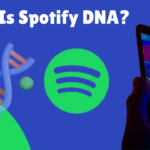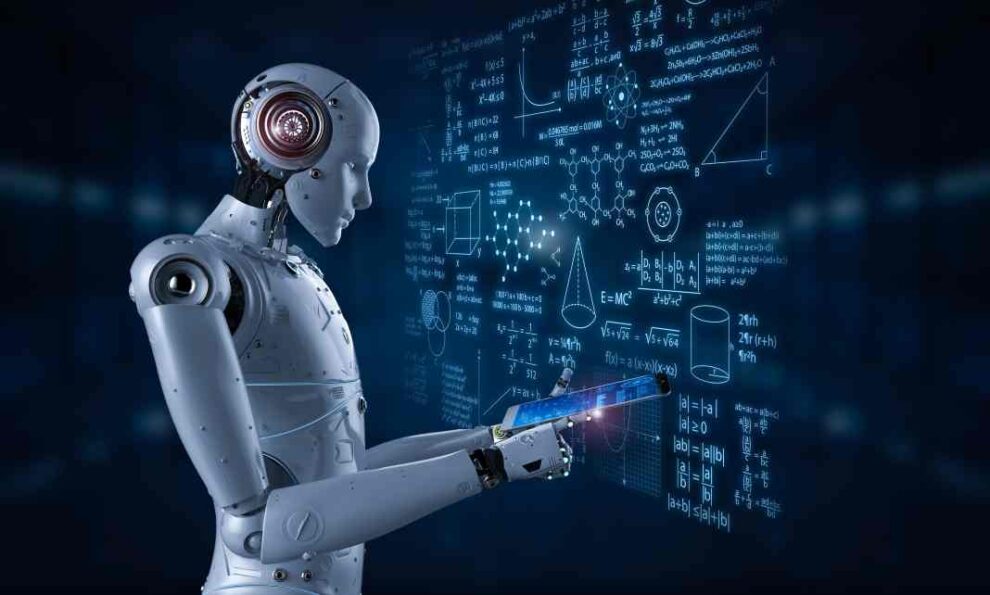You might have heard about “artificial intelligence” or AI lately and wondered what it means. AI has been around for a while now, and it’s not just about robots taking over the world like in the movies.
Believe it or not, AI is already a part of our everyday lives! It’s used in many devices and apps we use every day, making things easier, faster, and more accurate.
Some industries can benefit from AI because it can help them be more efficient, accurate, and productive. In this blog, we will explore how AI is used in our daily life.
Personal/Virtual Assistants
Have you ever wondered how Siri, Alexa, or Google Assistant can help you with your daily tasks? The answer is Artificial Intelligence (AI) – the technology that powers virtual assistants.
Virtual assistants use natural language processing (NLP) and machine learning (ML) algorithms to understand and interpret voice commands. They can help with many tasks, such as setting reminders, making phone calls, sending texts, scheduling appointments, and ordering food. They can also provide weather updates, directions, and recommendations for local restaurants and shops.
The most significant benefits of virtual assistants are;
- They can learn from your behavior and preferences. For instance, if you ask your virtual assistant to play a particular song, it will remember your choice and play it the next time you ask.
- They can also control other smart devices in homes. For example, they can control lights, thermostats, and security systems. They can learn our routines and adjust settings accordingly.
- They are available 24/7. You can ask them for help at any time of the day.
Healthcare
AI-powered healthcare solutions can enhance patient outcomes, increase efficiency, and decrease healthcare expenses by helping physicians diagnose and treat diseases more accurately by analyzing large medical data sets, developing customized treatment plans, and tracking vital signs in real time through wearable health monitors. Additionally, AI-powered chatbots can assist patients with their queries, medication details, and scheduling appointments.
Navigation and Travel
Have you ever wondered how navigation apps like Google Maps and Waze work so seamlessly? Well, it’s all thanks to the hard work of AI programmers who constantly update and improve the technology.
These apps use massive amounts of geographical data that is updated in real-time, which can only be effectively cross-checked by ML algorithms unleashed on satellite images. AI in the private sector has also contributed to creating digital maps that incorporate information about cycling lanes and parking spots, all in real time. It can even help ascertain routes on satellite images covered by natural overgrowth with the help of predictive models.
Online Shopping
One of the many ways AI is used is to provide a more personalized experience for shoppers. AI can suggest products based on previous purchases and browsing history. Companies like Amazon use AI to do this, and it’s been shown to increase sales because customers are more likely to buy products tailored to their preferences.
AI also helps businesses with their back-end operations by predicting the demand for certain products, which can help companies optimize their stock levels and avoid overstocking or running out of inventory. Furthermore, AI can analyze data to identify the most effective keywords and ad placements, which can help online retailers get the most out of their advertising budget.
AI in robotics to automate tasks and improve the efficiency of manufacturing processes. For example, robots can assemble, package, and transport products to shipping areas.
Smart Home Technology
We know smart home devices can help with security and surveillance, but did you know that AI can also make your home more comfortable and convenient?
The great thing about AI is that if there’s a chore you don’t want to do, there’s probably a machine that can do it for you, like an AI-powered vacuum cleaner which is simply AI in robotics. Many AI-powered devices are available now that can help make your life easier. For instance, there are self-cleaning litter boxes for cats, robotic lawnmowers, automatic pet feeders, automatic garden sprinklers, and even laundry-folding machines!
So, with the help of AI, you can spend more time doing the things you love, and less time on the chores you don’t.
Autonomous Vehicles
You may have heard about Tesla’s self-driving cars. AVs are cars that can drive themselves using a combination of sensors, cameras, and artificial intelligence (AI) technology. This advanced technology is being developed to drastically reduce the number of accidents and the need for parking spaces.
AVs would make commuting so much easier and less stressful! And the best part is that it’s not just Tesla; most car manufacturers are working on AVs, so we can expect to see more self-driving cars on the road.
However, some challenges remain to overcome before AVs become a constant reality. These challenges are not just limited to the private sector but also AI in robotics.
Autonomous robots are being developed to help with manufacturing, transportation, and even healthcare tasks. They can perform tasks faster and more precisely than humans, making them valuable assets in various industries.
Gaming
AI has been used in gaming for a long time. Games like Pac-Man and Pong used AI to create a more interactive gaming experience. In recent times, game designers have started using AI to improve gamers’ mental health.
Some games are designed to assess gamers’ mental strength when faced with tough challenges. These games are helping researchers to find ways to reduce anxiety and depression in gamers and people in general.
Some games also use Virtual Reality (VR) headsets and Cognitive Behavioral Therapy (CBT) to improve engagement and offer a more immersive experience. AI in robotics helps these games adapt to the user’s behavior as they play, making them more personalized and engaging.
Language Translation
AI-powered language translation has made communication more accessible and efficient for people worldwide. With the help of AI, language barriers are no longer a hindrance in various industries, especially in the private sector, where businesses can communicate with clients and partners from different countries seamlessly.
AI-powered language translation tools like Google Translate, Microsoft Translator, and DeepL can translate large amounts of text instantly, making it easier for people to communicate with each other regardless of language differences. These tools use sophisticated algorithms and machine learning to improve their accuracy over time.
This has significantly impacted daily life, allowing people to travel, work, and communicate with ease. Tourists can use translation apps to navigate foreign countries, and professionals can communicate with clients and colleagues from different parts of the world without learning multiple languages. AI in language translation has made the world more connected and accessible.
Personalized Marketing
When you browse online, you see ads and content that seem to be personalized just for you. That’s because brands are using AI to personalize their marketing strategies. Using customer data, brands can target specific individuals with content that appeals to their interests and needs.
Customers who receive automated e-mails and feedback forms with personalized recommendations are more likely to buy products. AI also predicts how well an advertisement will perform, helping brands reach the right people more likely to be interested in their products. AI marketing apps can help new customers and those already interested in a brand.
Facial Recognition
AI facial recognition technology helps in daily life by allowing us to easily unlock our smartphones, access our devices and applications, and secure our data. It is also used in security systems to detect and identify threats in public areas like airports and train stations. It also helps law enforcement agencies locate missing persons, track down criminals and solve crimes by identifying suspects through facial recognition algorithms. This technology has made our lives more convenient and secure.
Streaming Apps
Do streaming apps like Netflix, Spotify, and Hulu seem to know what you want to watch or listen to? The answer is Artificial Intelligence (AI)! These apps use machine learning algorithms to analyze your interactions with various media, such as movies or songs, to recommend content that matches your preferences.
By looking at what you’ve watched or listened to in the past, AI can create personalized catalogs of music, TV shows, and movies. This means you can spend more time enjoying the content you love and less time scrolling through endless options. It also ensures uninterrupted streaming by automating server allocation. By doing so, they adjust bandwidth allocation based on media popularity, and you can enjoy seamless streaming without any buffering issues.
Overall, AI has revolutionized how we consume media, making it easier to find and enjoy the content we love.
In a Nutshell
AI is rapidly transforming our daily lives in countless ways. From virtual assistants to autonomous vehicles, AI has already significantly impacted the world we live in. As AI technology advances, we can expect to see even more exciting applications. Whether in healthcare, transportation, or manufacturing, AI is a game-changer, improving efficiency, accuracy, and productivity across all industries.



















Add Comment